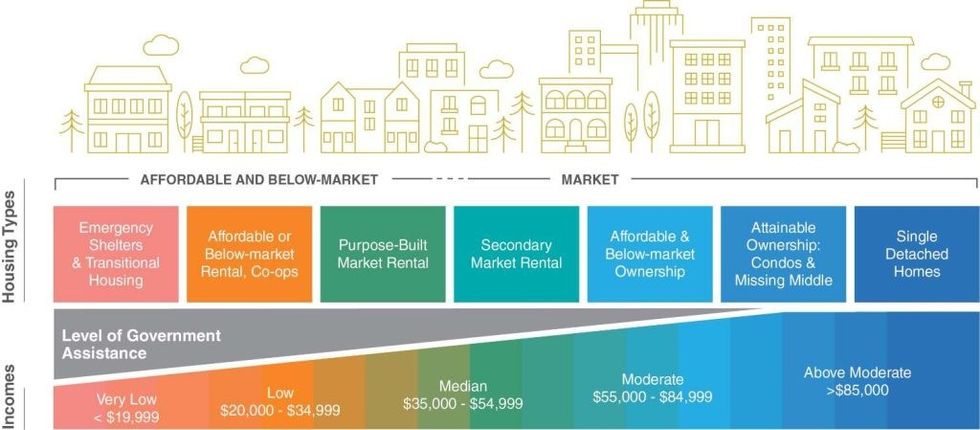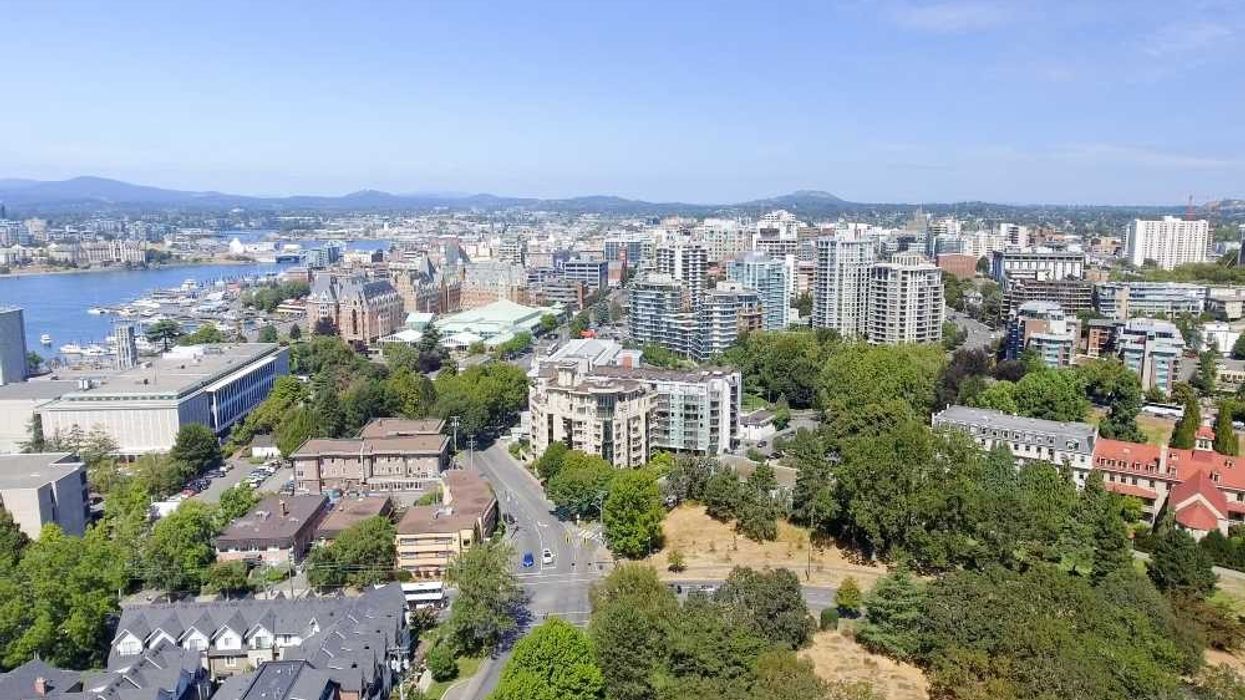In its first meeting of the new year, Victoria City Council passed a motion directing staff to study the impacts of eliminating parking minimums for most homes, in an attempt to address housing and affordability concerns in the region.
According to the motion, titled Near-Term Measures to Encourage More Housing and Affordability, City staff will not only study the effects of "bylaw amendments and other policies that remove minimum parking requirements for most or all Victoria homes and lots," but will also provide recommendations on "expanding adoption of transit passes for tenants, car share, bike/mobility scooter parking, maximum parking requirements, and other transportation demand measures."
"The shortage of rental suites and other homes, and high rents and housing costs, amounts to a housing crisis and needs to be addressed," reads the motion, submitted by Councillors Dave Thompson and Krista Loughton.
Thompson and Loughton also called for revisiting the City's House Conversion Regulations, which govern the conversion of houses into multi-unit dwellings. City staff will now consider potential amendments such as relaxing or removing eligibility restrictions as it relates to the age of homes, lot dimensions, unit maximums, minimum floor areas, and storey maximums.
The City will also consider a series of amendments that would allow existing housing sites to add density without redevelopment, such as allowing three dwellings (including garden suites and tiny homes) in single-detached home and duplex zones, allowing dwellings in existing small-lot properties, and allowing additions to buildings secured for rental.
Furthermore, the motion includes a recommendation for the City to work with other municipalities, as well as the Union of BC Municipalities, to advocate for an amendment to the Local Government Act that would "phase out the grandfathering of year-round short-term rentals in existing units and buildings."
Thompson and Loughton also recommended that the City formally endorse the calls to action outlined by the Vancouver Island Housing Leadership Network (VIHLN), which include establishing a "Housing Centre," unlocking land, implementing financial exemptions, accelerating processes, promoting collaboration, and accessing collection expertise.
The VIHLN's calls to actions were raised in September, ahead of the October civic elections, and many components of the City's motion appear to be guided by those calls.
Housing and Affordability in Victoria

Victoria is currently amidst Phase Two of its Victoria Housing Strategy -- a bundle of policies and initiatives addressing housing needs across what the City calls the "housing continuum."
"No one policy on its own is expected to address all housing needs and collaboration with senior levels of government is critical," the City of Victoria's website reads.
READ: Affordability Credits Now On Their Way To Majority of BC Residents
To that end, the City of Victoria is addressing housing concerns from a multitude of angles, including establishing the Greater Victoria Rent Bank, completing the Village and Corridor Planning Project,examining expanding incentives for developers to building rentals, and, of course, studying the elimination of parking minimums.
The most notable action, however, is perhaps the long-awaited Missing Middle Housing Initiative, which has been discussed as early as 2019. The initiative seeks to allow houseplexes and corner townhouses, in addition to single-family homes, in traditional residential areas of Victoria. It has yet to be formally considered for approval, but Council is expected to do so this year.





















